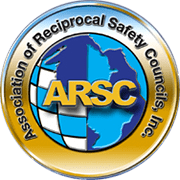By David Womack, Ph.D.
Safety and Health Manager, HSEQ & ARSC Owners Advisory Committee Chair
COVID-19 cases have been confirmed in all parts of the U.S. Workers in all industries are susceptible to the virus. Employers have the duty to determine if any confirmed positive cases should be recorded according to 29 CFR 1904. Under OSHA's recordkeeping requirements, COVID-19 exposure is a recordable illness and an employer’s responsibility to record the case if:
- The case is a confirmed case of COVID-19, as defined by the Centers for Disease Control and Prevention (CDC)
- The case is work-related as defined by 29 CFR 1904.5
- The case involves one or more of the general recording criteria described in 29 CFR 1904.7
Because the virus spreads so easily and employees can be exposed to it at and away from work, work relatedness can be difficult to determine. To assist their Certified Safety and Health Officers (CSHOs) OSHA published enforcement discretion guidelines for them on April 10, 2020. On May 26 OSHA updated those guidelines that are still in effect https://www.osha.gov/memos/2020-05-19/revised-enforcement-guidance-recording-cases-coronavirus-disease-2019-covid-19.
These guidelines assist employers in setting expectations for investigation of cases and recording them. First, OSHA does not expect employers to conduct extensive medical inquiries because of privacy concerns. They do expect employers to an employee how they believe they contracted the virus. The employer should ask the employee about their work and outside of work activities that potentially lead to their exposure. The employer should also review the employees work environment for potential exposure to the virus.
Secondly, employers are expected to make work relatedness determination based on information that is reasonably available to them. If new information becomes available, later then it should be taken into account.
Lastly, there is no simple formula that can be used to determine if a case is work related but they give the guidance below to their CSHOs:
- COVID-19 illnesses are likely work-related when several cases develop among workers who work closely together and there is no alternative explanation.
- An employee's COVID-19 illness is likely work-related if it is contracted shortly after lengthy, close exposure to a particular customer or coworker who has a confirmed case of COVID-19 and there is no alternative explanation.
- An employee's COVID-19 illness is likely work-related if his job duties include having frequent, close exposure to the general public in a locality with ongoing community transmission and there is no alternative explanation.
- An employee's COVID-19 illness is likely not work-related if she is the only worker to contract COVID-19 in her vicinity and her job duties do not include having frequent contact with the general public, regardless of the rate of community spread.
- An employee's COVID-19 illness is likely not work-related if he, outside the workplace, closely and frequently associates with someone (e.g., a family member, significant other, or close friend) who (1) has COVID-19; (2) is not a coworker, and (3) exposes the employee during the period in which the individual is likely infectious.
- CSHOs should give due weight to any evidence of causation, pertaining to the employee illness, at issue provided by medical providers, public health authorities, or the employee herself.
If the employer determines the case is work related, it should be documented on OSHA’s Form 300. COVID-19 is a respiratory illness and should be coded as such. Because this is an illness, if an employee requests that his or her name not be entered on the log, the employer must comply.
Employers should do all they can to prevent the spread of COVID-19 in the workplace. Below is a link to their Guidance on Returning to Work.
